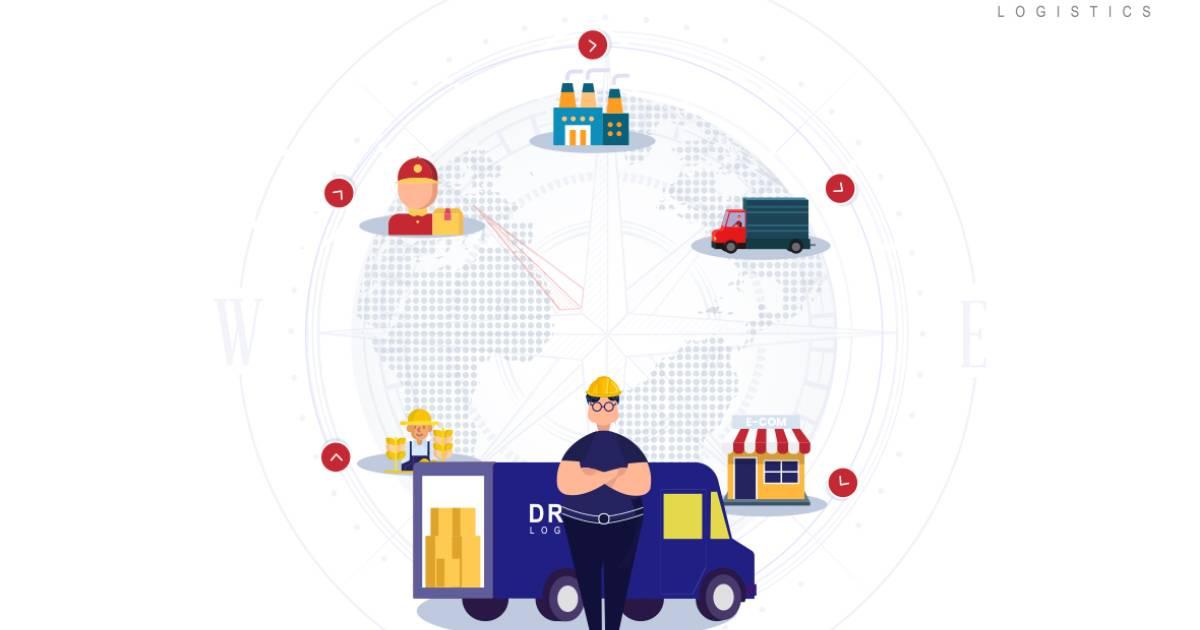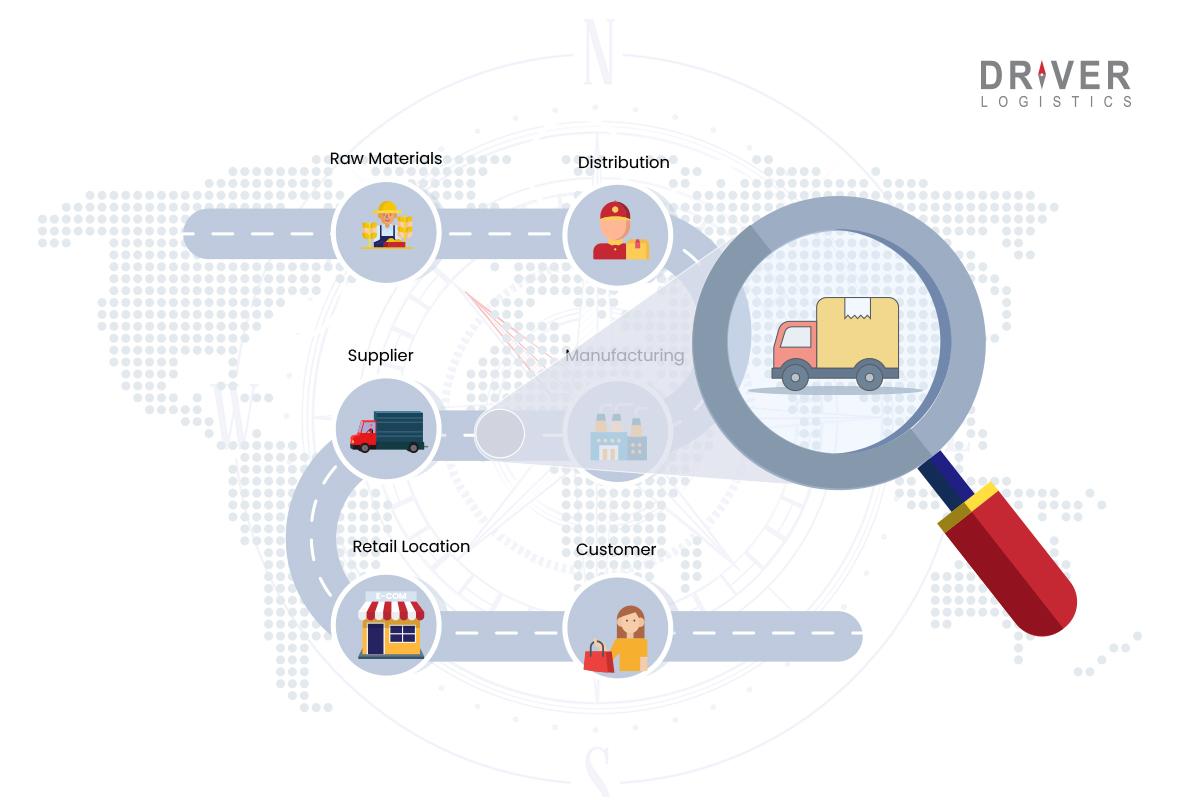
Top 6 Benefits of Non-Asset Based 3PL Services Over Asset Based 3PL Services
Oct 9, 2023
Are you planning to outsource your logistics requirements to a 3PL service provider? Well, if you have decided on 3PL, then let's move to the next crucial part; confirm what you need! An asset-based or a non-asset-based 3PL provider? You might have heard about 3PL, but for many of you, asset-based and non-asset-based 3PL might be new terms within logistics.
Let's take a quick glimpse through these two categories to decide what's best for your business. The major differences between asset-based and non-asset-based logistics lie in ownership. Asset-based service providers fully or partially own logistics elements. Meanwhile, non-asset-based service providers depend on a multitude of networks as per the client requirements and market trends. While analysing the logistics trends over these years, non-asset-based 3PL companies have gained high momentum. Businesses seem to outsource their logistics requirements to non-asset-based service providers rather than asset-based ones.
Read More: Top 6 Inventory Management strategies to Boost Supply Chain Efficiency

Why Non-Asset Based Logistics Trend is Emerging? You might be confused! Why would businesses choose a 3PL company that doesn't even own a freight management system over a company that has a full-fledged freight system? Here are a few advantages that will help you understand why non-asset-based 3PL companies are in vogue. choice:
Flexibility in services & Infrastructure
Logistics is not a linear service. Flexibility in services and resources is necessary to bring efficiency to fleet and delivery. Technology and market trends will change frequently. 3PL companies need to adapt to the changing market practices to provide clients with a high-end solution & help them meet the changing customer demands. Compared to non-asset-based 3PL companies, asset-based 3PL companies have a set of skills and freight systems that mould the clients' needs & goals to fit into their predetermined system. They may find it difficult to comply with changing logistics trends and customize strategies for you. Hence, scalable flexibility and customization of strategies make non-asset-based 3PL a better choice for businesses. It understands the clients' business goals and chooses the best resources from their professional network to bring out the optimal effect. The bigger network helps 3PL companies to mix and match services according to the business demands and the expectations of the consumers.
Modular Solution Based on Knowledge & Experience
Practical knowledge and hands-on experience in supply chain management are one of the benefits of non-asset-based 3PL units. As you know, asset-based 3PL companies have a uniform system. They work inside a fixed operational system and are involved in maintaining their assets for better performance. Hence, in matters of exposure to other professional networks and experience in dealing with supply chain requirements through custom-built strategies, non-asset-based 3PL companies stay a step ahead of the asset-based logistics service providers. With industry knowledge and value-added services, non-asset-based 3PL helps to find the cutting-edge resources that work best for the clients. Every client has unique needs and purposes. A single operational strategy will not work for all of them. So, an insight-driven approach is needed rather than focusing on and improving a single operational freight that could become outdated over time.

Recommended Reading: Trim Logistics Expenses: 10 Quick & Simple Tips
Higher Financial Stability to Meet Future Requirements
Having fixed resources and investments is not a yardstick to measure the financial capability of a 3PL unit. You might be thinking that since asset-based 3PL have their own assets, they offer stable and measurable performance. Complete ownership of logistics amenities necessitates continuous demand for maintenance and overhead. This could make them more asset-oriented than being customer-oriented. While in non-asset-based 3PL, the larger network with diverse carriers focuses on customers as they don't have a vested interest in asset management. They use time and knowledge base to improve the deliverance quality of tools and logistics resources.
Better Negotiations on Conflicts of Interest
For smaller companies, non-asset-based 3PL company support is a silver bullet to raising standards. An asset-based 3PL company has its own charges, which may not be open for negotiation. Though some of the asset-based 3PL providers explore the possibilities in freight beyond their skillset, in most cases the single means of freight makes it difficult to negotiate the price. Also, it poses hindrances to choosing the best carrier that fits perfectly with the product you are transporting. In such cases, non-asset-based 3PL units let you leverage your bargaining power by understanding market insights and changing market trends. Moreover, the well-established market relationship and industry experience help non-asset-based 3PLs to provide cost-effective solutions through better negotiation.
Complete Adherence to Customer Demands
Independence and objectivity is the key to providing customers with an efficient strategy that helps them improve their resources. In the case of asset-based 3PL companies, they might have vested interests to convince customers to mould their goals towards their skillset primarily. On the other hand, non-asset-based 3PL units are free to make choices. They help you figure out the best that fits your pockets and goals from the plethora of choices.

Relevant Reading: Top Reasons Why You Need Blockchain in Logistics to Boost Supply Chain Efficiency
Enhanced Visibility of Supply chain Activities
A transparent or visible ecosystem is necessary to build a client-oriented logistics unit. Mostly, in asset-based 3PL, strategies are predetermined. Your goals are shaped according to the availability of resources. Here, you might not have a role to play. But, things are a little different in the case of non-asset-based activities. The planning and strategies are made by seeking your feedback, analysing your goals, and finding a cost-effective solution through market analysis. This helps you understand the processes involved and lets you provide valuable feedback and suggestions in each step.
How to Choose the Right Non-Asset-Based 3PL Service Provider?
3PL companies have flourished over these years with the advancement in eCommerce. Understanding your business goal is necessary to choose the right one that helps your business to grow. Here are two imperative criteria for choosing a non-asset-based 3PL provider:
Analyze their network & experience
The size of the professional network and experience in dealing with various freight categories is the primary requisite for a non-asset-based 3PL provider. Analyse their portfolios of work to verify their capability in dealing with conflicts of interest.
Inspect Incorporated Technology
Technology has widened its horizon. So, catching up with the neoteric trends is necessary to generate an impact in the supply chain. Ask your 3PL provider about the incorporated technology and predictive analysis methods to confirm their utilization of technology. If they claim experience and years of service, figure out how adaptive they are to the technology by checking recent updates, status, and improvements.
Similar Reading: 7 Key Considerations When Choosing a Warehouse Location for Your 3PL Business
Choose the Best & Leap Ahead Towards Growth
Both asset-based and non-asset-based 3PL providers have their own advantages and disadvantages. But due to flexibility in services, non-asset-based 3PL has become the choice of both small and large businesses as they provide ease in national and international supply chain management. Above all, identifying the business goal, product standards, and customer expectations is a crucial factor in deciding what you need. So, choose your 3PL partner wisely to improve your potential for growth and success.